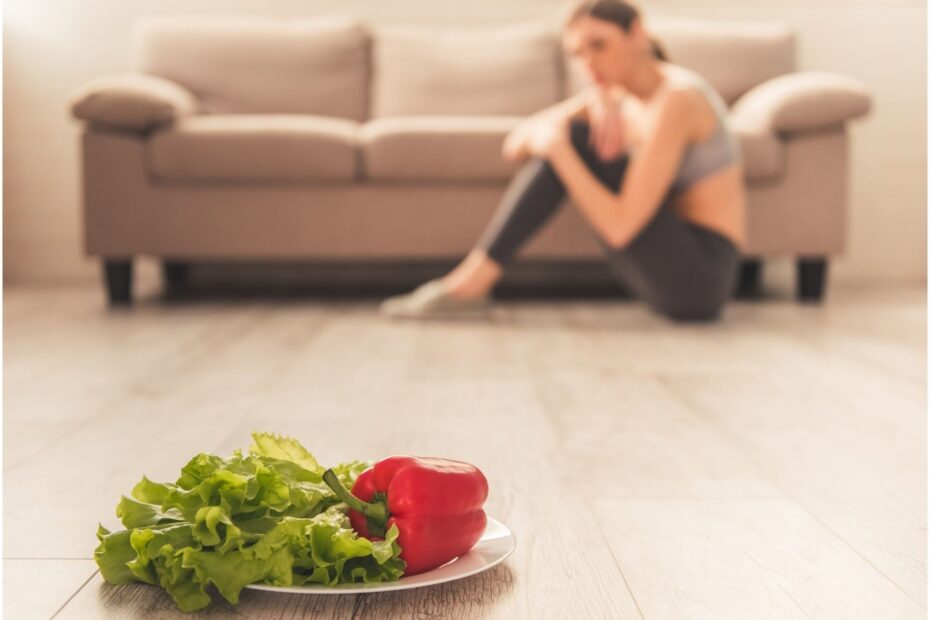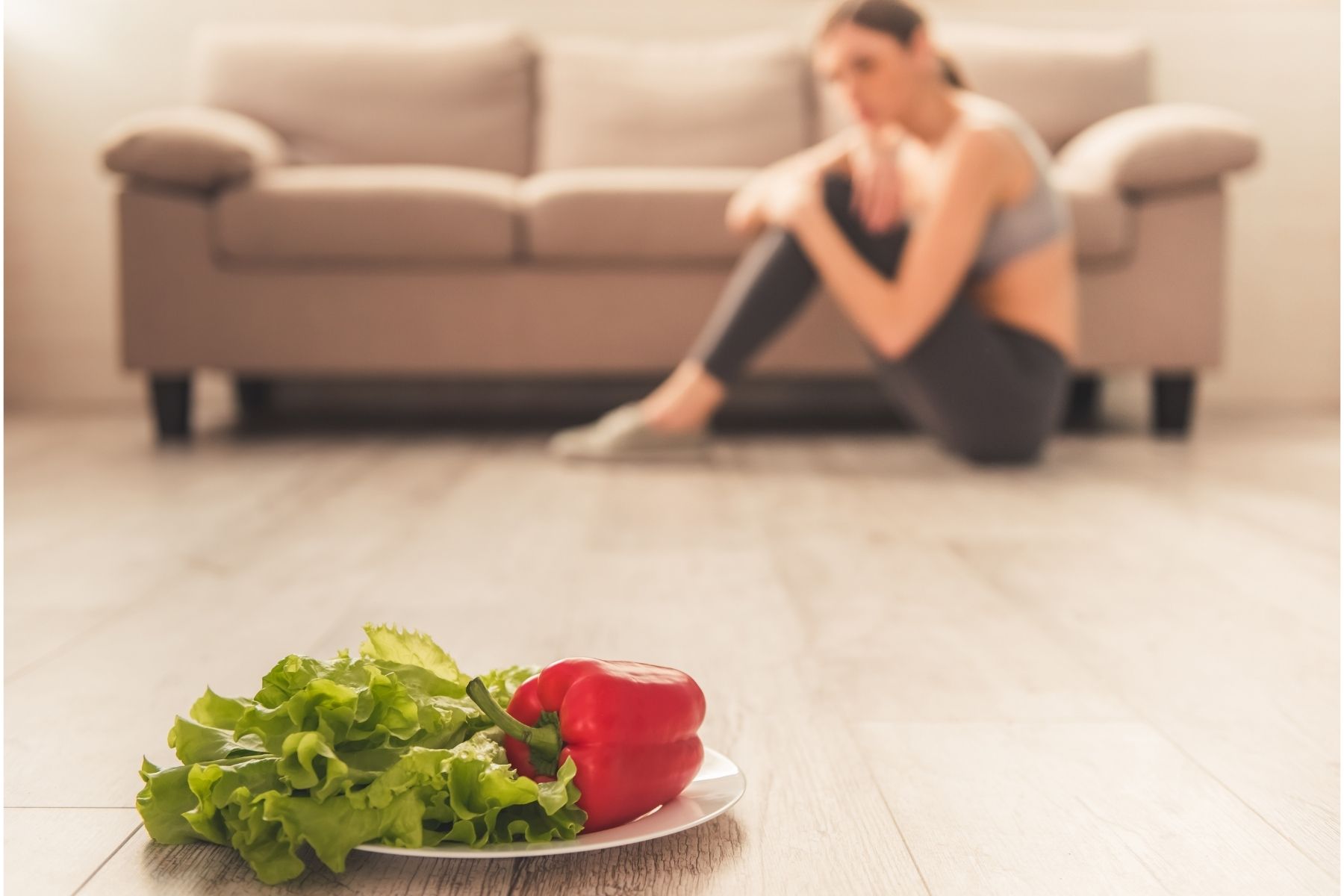There’s no magic pill or quick fix to lose weight overnight. However, it’s definitely possible to speed up this process and see progress in just weeks or days. If you want to lose weight, the biggest factor is that you need to change your lifestyle.
Losing weight isn’t as simple as counting calories or exercising every day. You also need to eat healthy foods and cut out unhealthy ones.
In this post I’m going to give you some tips on how to lose weight quickly.
Here’s Why Men Lose Weight Faster Than Women

If you’re trying to get rid of that belly fat, it turns out that losing that body fat may be easier for men than women. According to a study from the University of Michigan, researchers found that when they compared 20 obese people who lost an average of 15 pounds in six months (a group which included both genders), those who were male only had about half as much muscle loss as their female counterparts. So if your goal is to burn belly fat and build lean muscle mass, make sure you’re paying attention to what you eat —— because chances are, you’ll need to do more cardio to keep up with guys.
The first step towards getting into shape is figuring out why you want to change your body. Do you want to lose weight? Gain confidence? Meet new people? It’s important to know yourself well enough to understand what motivates you to take action toward achieving your goals. What will motivate you to work hard at sticking with your plan? You might find that one thing leads to another and before you know it, you’ve changed everything about your life.
Gender-specific differences
While there isn’t any specific research on how much protein women should consume per day, many experts recommend between 0.8 and 1 gram of protein per kilogram of bodyweight. For example, someone weighing 70 kg (154 lb) would need to eat somewhere around 56 grams of protein daily. A good way to determine your individualized recommended amount of protein intake is to multiply your ideal body weight by.4-.6 grams of protein per kilogram.
Why Weight Loss Is Harder for Women
Women have different hormones than men. This means that our bodies respond differently to exercise. “When we think about energy expenditure during physical activity, we tend to focus on the calories burned through movement, but this doesn’t account for all sources of energy used during exercise,” says Michael Jensen, PhD, professor of human sciences at Penn State University. “For example, muscles use oxygen and glucose, and these fuels are also used by the brain, heart, lungs, etc. When you consider all of these other uses of fuel during exercise, then the total number of calories expended becomes greater in women than in men.”
Drink Lots of Water Daily

A lot of us drink too little water. One reason could be that we don’t realize just how thirsty we actually are until it’s too late. As soon as you feel thirsty, stop drinking and wait 30 minutes before having another glass. By doing so, you’ll force your body to rehydrate itself. Be aware that caffeine can dehydrate you, so try to limit your consumption of caffeinated beverages like coffee or tea.
In addition to being healthy, green tea has been shown to boost metabolism and help control appetite, making it a great pick for weight loss. Green tea contains catechins, a type of antioxidant associated with increased satiety and reduced food intake, according to a 2015 review published in The Journal of Nutrition. Drinking four cups of green tea each day was associated with decreased waist circumference and body fat, according to another 2016 review published in Nutrients.
It’s no secret that chugging plain H2O can be less than stimulating, which is why scientists continue to develop tasty flavoured drinks to quench thirst – and why they’ll likely keep coming up with new flavours to entice us into trying them. But while it’s important to drink enough fluids to stay hydrated, it’s equally important to cut back on sugary drinks, which can rack up calories, quickly. And while diet soda might be calorie free, it’s hardly nutritious. So instead of reaching for one of these artificially sweetened options, turn to cucumber slices, fresh mint leaves or even lemon wedges to refresh.
Make Sure You Have Good Sleep

Sleep plays an essential role in maintaining overall health and wellbeing. Lack of proper sleep can lead to fatigue, stress, anxiety, depression, low self esteem, poor concentration, irritability, mood swings, headaches, high blood pressure, diabetes, obesity, infertility, heart disease, stroke, cancer, memory impairment, Alzheimer’s disease, arthritis, osteoporosis, chronic pain, and more.
In the United States alone, over 60 million people suffer from insomnia and about 10% of adults report sleeping less than 6 hours a night on average. This is not only bad for your physical health but also for your mental health. In fact, it has been shown that lack of sleep increases the risk of developing dementia by up to 50%.
There are many reasons why we don’t get enough sleep. Some include:
Stress – Stress causes our body to release cortisol which makes it harder for us to fall asleep.
Anxiety – We may find ourselves lying awake worrying about something.
Work – If we’re working long hours, we may find it hard to unwind and relax.
Technology – Our gadgets and screens emit blue light that keeps us alert and prevents us from falling asleep.
Alcohol – Alcohol can cause drowsiness and disrupt sleep patterns.
Diet – Certain foods such as chocolate, cheese, nuts, and sugar can make it difficult to fall asleep.
Substitute Your Beverages with Green Tea

Green tea is known to have numerous health benefits including improving brain function, boosting metabolism, reducing cholesterol levels, and helping burn fat. It also helps reduce hunger pangs and controls weight gain. According to a study conducted at the University of Scranton, those who drank 4-5 cups of green tea daily were able to lose between 1.6 and 2 pounds per week, mostly body fat, without changing their diets.
How does this work? Researchers believe that the polyphenols found in green tea block the ability of insulin to store fat. Insulin is a hormone produced by the pancreas that regulates blood sugar levels. When there’s too much insulin circulating in the bloodstream, sugar remains in the blood longer, causing energy crashes and cravings for sweets.
Do Some Weight and Resistance Training

Resistance training involves using weights to build muscle mass. The best way to do this is through lifting weights three times a week. You should aim to lift heavier weights each time you train so that you can increase your strength and endurance.
Weight training will help you maintain a healthy weight because it burns calories and body fat faster than cardio exercise. Plus, building muscles boosts your metabolism, making it easier to shed excess pounds.
Cardio exercises like running, swimming, cycling and walking are great ways to burn calories. However, they won’t necessarily help you lose weight unless you combine them with a diet plan.
Include Cardio Into Your Workouts Too

It’s important to incorporate some form of cardiovascular activity into your fitness routine. Cardiovascular activities improve your stamina and boost your metabolic rate, which means you’ll be burning more calories throughout the day.
If you want to lose weight, try combining cardio with resistance training. A study published in the Journal of Strength and Conditioning Research found that participants who performed both types of workouts lost twice as much weight as those who did either one alone.
You don’t need to spend an hour on the treadmill every day to reap these benefits. Just 30 minutes of brisk walking or jogging five days a week will give you plenty of bang for your buck.
Watch What You Snack

When you eat, focus on what you’re eating rather than how hungry you are. This allows you to enjoy food while avoiding mindless overeating which causes you to gain extra weight. Try to avoid eating when you feel bored, angry, sad, lonely, tired or stressed. Instead, eat when you’re relaxed and happy.
Eat smaller meals throughout the day instead of two large ones. Smaller meals keep your blood sugar steady, which reduces cravings and makes it easier to stick to your diet.
Avoid skipping breakfast. Breakfast skippers tend to snack later in the day and often end up consuming more calories than if they had eaten something nutritious first thing in the morning.
Eating small amounts of protein throughout the day may help you stay full. Protein keeps you feeling fuller for longer than carbs and fats do. Also add fiber to your diet. Fiber fills you up quickly and slows digestion, keeping you from getting hungry again soon after you’ve finished eating.
Manage Your Stress Levels

Stress affects our bodies physically and mentally. It causes us to crave unhealthy foods and make poor decisions. If you find yourself under stress, take a few deep breaths and relax. Avoid negative thoughts and emotions, such as anger, frustration, anxiety and depression. These feelings can cause you to eat more.
Instead, think positively and look at stressful situations as challenges. Focus on the things you can control, not the things you cannot. For example, if you have trouble sleeping, get enough sleep. If you have no money, ask friends and family for help.
If you are feeling stressed out or overwhelmed, try to identify what is causing it. Is there something in your life that needs to be changed? Do you need to do something differently? Perhaps you should seek professional counseling if it gets serious.
Consume Lesser Calories

Lastly, one of the best way to cut calories is to reduce portion sizes by half. You won’t necessarily notice a difference right away, but over time, you’ll see results due to the rate of weight loss.
Reduce the amount of fat you consume. Fat contains nine calories per gram compared to just four for carbohydrates and proteins. Cut back on saturated and trans fats, which contain lots of calories without providing many nutrients.
Try to limit your alcohol consumption too. Alcohol has empty calories: It doesn’t provide any nutritional value and adds extra pounds. One drink contains about 100 calories. That means if you have three drinks a night, you could gain 10 pounds in a year!

